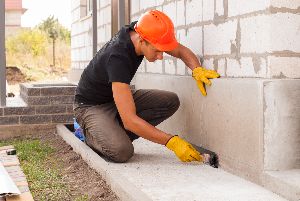
Radon is a naturally occurring gas that's usually not harmful in trace amounts. But a high reading on a radon test can be cause for alarm in a household. The following answers to some common questions explain why these tests are vital.
A Brief Guide to Radon
How does radon get into homes?
As uranium naturally breaks down in the environment, it infuses elements like rocks, soil, and water with radon gas. This odorless, colorless gas can then come up from the soil under your home and make its way inside through cracks in the foundation. If you have a well on your property, it could also enter your water supply, which naturally passes through water-bearing rocks known as aquifers.
How does it affect your health?
Breathing in radon for a long period of time can have a detrimental impact on your lungs. Radon gas is the second leading cause of lung cancer, with smoking being the top cause. Exposure usually doesn't cause symptoms until many years have passed. At that point, people can experience wheezing, coughing, and shortness of breath.
What happens during a radon test?

When testing for radon, there are two available device options. Passive devices like charcoal canisters and electric ion detectors collect air samples, which are then sent out to a lab for testing. Active devices continuously monitor the air and require an electrical power source to function. Active devices are often used by professional testers and provide more accurate results.
What can you do when levels are too high?
The average home has a radon level of about 1.25 picocuries per liter of air, which is not considered harmful. Levels measuring 4 pCi/L or higher call for swift action.
If there are cracks in your basement walls and foundation, having them repaired can reduce the levels of radon in your home. Enhancing ventilation is also beneficial, as it can disperse some of the gas. When levels are extremely high, homeowners can invest in radon mitigation technology, which uses a fan and ventilation systems to move contaminated air away from the property.
For more than 30 years, American Environmental Laboratories has helped homeowners throughout St. Louis, MO, maintain healthy households. This skilled and experienced team provides dependable radon tests and other types of environmental assessments. State-licensed and approved by HomeAdvisor®, you can expect fast, efficient, and accurate results. Learn more about their testing services online, or call (314) 664-2800 to schedule an evaluation.
About the Business
Have a question? Ask the experts!
Send your question

